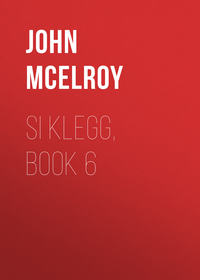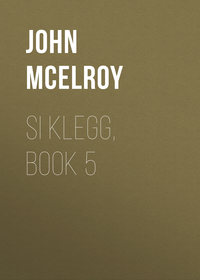
Полная версия
Andersonville A Story of Rebel Military Prisons
The years 1864-5 were a season of desperate battles, but in that time many more Union soldiers were slain behind the Rebel armies, by starvation and exposure, than were killed in front of them by cannon and rifle. The country has heard much of the heroism and sacrifices of those loyal youths who fell on the field of battle; but it has heard little of the still greater number who died in prison pen. It knows full well how grandly her sons met death in front of the serried ranks of treason, and but little of the sublime firmness with which they endured unto the death, all that the ingenious cruelty of their foes could inflict upon them while in captivity.
It is to help supply this deficiency that this book is written. It is a mite contributed to the better remembrance by their countrymen of those who in this way endured and died that the Nation might live. It is an offering of testimony to future generations of the measureless cost of the expiation of a national sin, and of the preservation of our national unity.
This is all. I know I speak for all those still living comrades who went with me through the scenes that I have attempted to describe, when I say that we have no revenges to satisfy, no hatreds to appease. We do not ask that anyone shall be punished. We only desire that the Nation shall recognize and remember the grand fidelity of our dead comrades, and take abundant care that they shall not have died in vain.
For the great mass of Southern people we have only the kindliest feeling. We but hate a vicious social system, the lingering shadow of a darker age, to which they yield, and which, by elevating bad men to power, has proved their own and their country's bane.
The following story does not claim to be in any sense a history of Southern prisons. It is simply a record of the experience of one individual—one boy—who staid all the time with his comrades inside the prison, and had no better opportunities for gaining information than any other of his 60,000 companions.
The majority of the illustrations in this work are from the skilled pencil of Captain O. J. Hopkins, of Toledo, who served through the war in the ranks of the Forty-second Ohio. His army experience has been of peculiar value to the work, as it has enabled him to furnish a series of illustrations whose life-like fidelity of action, pose and detail are admirable.
Some thirty of the pictures, including the frontispiece, and the allegorical illustrations of War and Peace, are from the atelier of Mr. O. Reich, Cincinnati, O.
A word as to the spelling: Having always been an ardent believer in the reformation of our present preposterous system—or rather, no system—of orthography, I am anxious to do whatever lies in my power to promote it. In the following pages the spelling is simplified to the last degree allowed by Webster. I hope that the time is near when even that advanced spelling reformer will be left far in the rear by the progress of a people thoroughly weary of longer slavery to the orthographical absurdities handed down to us from a remote and grossly unlearned ancestry.
Toledo, O., Dec. 10, 1879.
JOHN McELROY.
p032.jpg (36K)
We wait beneath the furnace blast The pangs of transformation; Not painlessly doth God recast And mold anew the nation. Hot burns the fire Where wrongs expire; Nor spares the hand That from the land Uproots the ancient evil. The hand-breadth cloud the sages feared Its bloody rain is dropping; The poison plant the fathers spared All else is overtopping. East, West, South, North, It curses the earth; All justice dies, And fraud and lies Live only in its shadow. Then let the selfish lip be dumb And hushed the breath of sighing; Before the joy of peace must come The pains of purifying. God give us grace Each in his place To bear his lot, And, murmuring not, Endure and wait and labor! WHITTIER
p033.jpg (57K)
ANDERSONVILLE
A STORY OF REBEL MILITARY PRISONS
CHAPTER I.
A STRANGE LAND—THE HEART OF THE APPALACHIANS—THE GATEWAY OF AN EMPIRE —A SEQUESTERED VALE, AND A PRIMITIVE, ARCADIAN, NON-PROGRESSIVE PEOPLE.
A low, square, plainly-hewn stone, set near the summit of the eastern approach to the formidable natural fortress of Cumberland Gap, indicates the boundaries of—the three great States of Virginia, Kentucky and Tennessee. It is such a place as, remembering the old Greek and Roman myths and superstitions, one would recognize as fitting to mark the confines of the territories of great masses of strong, aggressive, and frequently conflicting peoples. There the god Terminus should have had one of his chief temples, where his shrine would be shadowed by barriers rising above the clouds, and his sacred solitude guarded from the rude invasion of armed hosts by range on range of battlemented rocks, crowning almost inaccessible mountains, interposed across every approach from the usual haunts of men.
Roundabout the land is full of strangeness and mystery. The throes of some great convulsion of Nature are written on the face of the four thousand square miles of territory, of which Cumberland Gap is the central point. Miles of granite mountains are thrust up like giant walls, hundreds of feet high, and as smooth and regular as the side of a monument.
Huge, fantastically-shaped rocks abound everywhere—sometimes rising into pinnacles on lofty summits—sometimes hanging over the verge of beetling cliffs, as if placed there in waiting for a time when they could be hurled down upon the path of an advancing army, and sweep it away.
Large streams of water burst out in the most unexpected planes, frequently far up mountain sides, and fall in silver veils upon stones beaten round by the ceaseless dash for ages. Caves, rich in quaintly formed stalactites and stalagmites, and their recesses filled with metallic salts of the most powerful and diverse natures; break the mountain sides at frequent intervals. Everywhere one is met by surprises and anomalies. Even the rank vegetation is eccentric, and as prone to develop into bizarre forms as are the rocks and mountains.
The dreaded panther ranges through the primeval, rarely trodden forests; every crevice in the rocks has for tenants rattlesnakes or stealthy copperheads, while long, wonderfully swift "blue racers" haunt the edges of the woods, and linger around the fields to chill his blood who catches a glimpse of their upreared heads, with their great, balefully bright eyes, and "white-collar" encircled throats.
The human events happening here have been in harmony with the natural ones. It has always been a land of conflict. In 1540—339 years ago —De Soto, in that energetic but fruitless search for gold which occupied his later years, penetrated to this region, and found it the fastness of the Xualans, a bold, aggressive race, continually warring with its neighbors. When next the white man reached the country—a century and a half later—he found the Xualans had been swept away by the conquering Cherokees, and he witnessed there the most sanguinary contest between Indians of which our annals give any account—a pitched battle two days in duration, between the invading Shawnees, who lorded it over what is now Kentucky, Ohio and Indiana—and the Cherokees, who dominated the country the southeast of the Cumberland range. Again the Cherokees were victorious, and the discomfited Shawnees retired north of the Gap.
Then the white man delivered battle for the possession the land, and bought it with the lives of many gallant adventurers. Half a century later Boone and his hardy companion followed, and forced their way into Kentucky.
Another half century saw the Gap the favorite haunt of the greatest of American bandits—the noted John A. Murrell—and his gang. They infested the country for years, now waylaying the trader or drover threading his toilsome way over the lone mountains, now descending upon some little town, to plunder its stores and houses.
At length Murrell and his band were driven out, and sought a new field of operations on the Lower Mississippi. They left germs behind them, however, that developed into horse thieve counterfeiters, and later into guerrillas and bushwhackers.
When the Rebellion broke out the region at once became the theater of military operations. Twice Cumberland Gap was seized by the Rebels, and twice was it wrested away from them. In 1861 it was the point whence Zollicoffer launched out with his legions to "liberate Kentucky," and it was whither they fled, beaten and shattered, after the disasters of Wild Cat and Mill Springs. In 1862 Kirby Smith led his army through the Gap on his way to overrun Kentucky and invade the North. Three months later his beaten forces sought refuge from their pursuers behind its impregnable fortifications. Another year saw Burnside burst through the Gap with a conquering force and redeem loyal East Tennessee from its Rebel oppressors.
Had the South ever been able to separate from the North the boundary would have been established along this line.
Between the main ridge upon which Cumberland Gap is situated, and the next range on the southeast which runs parallel with it, is a narrow, long, very fruitful valley, walled in on either side for a hundred miles by tall mountains as a City street is by high buildings. It is called Powell's Valley. In it dwell a simple, primitive people, shut out from the world almost as much as if they lived in New Zealand, and with the speech, manners and ideas that their fathers brought into the Valley when they settled it a century ago. There has been but little change since then. The young men who have annually driven cattle to the distant markets in Kentucky, Tennessee and Virginia, have brought back occasional stray bits of finery for the "women folks," and the latest improved fire-arms for themselves, but this is about all the innovations the progress of the world has been allowed to make. Wheeled vehicles are almost unknown; men and women travel on horseback as they did a century ago, the clothing is the product of the farm and the busy looms of the women, and life is as rural and Arcadian as any ever described in a pastoral. The people are rich in cattle, hogs, horses, sheep and the products of the field. The fat soil brings forth the substantials of life in opulent plenty. Having this there seems to be little care for more. Ambition nor avarice, nor yet craving after luxury, disturb their contented souls or drag them away from the non-progressive round of simple life bequeathed them by their fathers.
CHAPTER II.
SCARCITY OF FOOD FOR THE ARMY—RAID FOR FORAGE—ENCOUNTER WIT THE REBELS —SHARP CAVALRY FIGHT—DEFEAT OF THE "JOHNNIES"—POWELL'S VALLEY OPENED UP.
As the Autumn of 1863 advanced towards Winter the difficulty of supplying the forces concentrated around Cumberland Gap—as well as the rest of Burnside's army in East Tennessee—became greater and greater. The base of supplies was at Camp Nelson, near Lexington, Ky., one hundred and eighty miles from the Gap, and all that the Army used had to be hauled that distance by mule teams over roads that, in their best state were wretched, and which the copious rains and heavy traffic had rendered well-nigh impassable. All the country to our possession had been drained of its stock of whatever would contribute to the support of man or beast. That portion of Powell's Valley extending from the Gap into Virginia was still in the hands of the Rebels; its stock of products was as yet almost exempt from military contributions. Consequently a raid was projected to reduce the Valley to our possession, and secure its much needed stores. It was guarded by the Sixty-fourth Virginia, a mounted regiment, made up of the young men of the locality, who had then been in the service about two years.
Maj. C. H. Beer's third Battalion, Sixteenth Illinois Cavalry—four companies, each about 75 strong—was sent on the errand of driving out the Rebels and opening up the Valley for our foraging teams. The writer was invited to attend the excursion. As he held the honorable, but not very lucrative position of "high, private" in Company L, of the Battalion, and the invitation came from his Captain, he did not feel at liberty to decline. He went, as private soldiers have been in the habit of doing ever since the days of the old Centurion, who said with the characteristic boastfulness of one of the lower grades of commissioned officers when he happens to be a snob:
For I am also a man set under authority, having under me soldiers, and I say unto one, Go; and he goeth; and to another, Come, and he cometh; and to my servant, Do this, and he doeth it.
Rather "airy" talk that for a man who nowadays would take rank with Captains of infantry.
p038.jpg (51K)
Three hundred of us responded to the signal of "boots and saddles," buckled on three hundred more or less trusty sabers and revolvers, saddled three hundred more or less gallant steeds, came into line "as companies" with the automatic listlessness of the old soldiers, "counted off by fours" in that queer gamut-running style that makes a company of men "counting off"—each shouting a number in a different voice from his neighbor—sound like running the scales on some great organ badly out of tune; something like this:
One. Two. Three. Four. One. Two. Three. Four. One. Two. Three. Four.
Then, as the bugle sounded "Right forward! fours right!" we moved off at a walk through the melancholy mist that soaked through the very fiber of man and horse, and reduced the minds of both to a condition of limp indifference as to things past, present and future.
Whither we were going we knew not, nor cared. Such matters had long since ceased to excite any interest. A cavalryman soon recognizes as the least astonishing thing in his existence the signal to "Fall in!" and start somewhere. He feels that he is the "Poor Joe" of the Army—under perpetual orders to "move on."
Down we wound over the road that zig-tagged through the forts, batteries and rifle-pits covering the eastern ascent to the Flap-past the wonderful Murrell Spring—so-called because the robber chief had killed, as he stooped to drink of its crystal waters, a rich drover, whom he was pretending to pilot through the mountains—down to where the "Virginia road" turned off sharply to the left and entered Powell's Valley. The mist had become a chill, dreary rain, through, which we plodded silently, until night closed in around us some ten miles from the Gap. As we halted to go into camp, an indignant Virginian resented the invasion of the sacred soil by firing at one of the guards moving out to his place. The guard looked at the fellow contemptuously, as if he hated to waste powder on a man who had no better sense than to stay out in such a rain, when he could go in-doors, and the bushwhacker escaped, without even a return shot.
Fires were built, coffee made, horses rubbed, and we laid down with feet to the fire to get what sleep we could.
Before morning we were awakened by the bitter cold. It had cleared off during the night and turned so cold that everything was frozen stiff. This was better than the rain, at all events. A good fire and a hot cup of coffee would make the cold quite endurable.
At daylight the bugle sounded "Right forward! fours right!" again, and the 300 of us resumed our onward plod over the rocky, cedar-crowned hills.
p040.jpg (54K)
In the meantime, other things were taking place elsewhere. Our esteemed friends of the Sixty-fourth Virginia, who were in camp at the little town of Jonesville, about 40 miles from the Gap, had learned of our starting up the Valley to drive them out, and they showed that warm reciprocity characteristic of the Southern soldier, by mounting and starting down the Valley to drive us out. Nothing could be more harmonious, it will be perceived. Barring the trifling divergence of yews as to who was to drive and who be driven, there was perfect accord in our ideas.
Our numbers were about equal. If I were to say that they considerably outnumbered us, I would be following the universal precedent. No soldier-high or low-ever admitted engaging an equal or inferior force of the enemy.
About 9 o'clock in the morning—Sunday—they rode through the streets of Jonesville on their way to give us battle. It was here that most of the members of the Regiment lived. Every man, woman and child in the town was related in some way to nearly every one of the soldiers.
The women turned out to wave their fathers, husbands, brothers and lovers on to victory. The old men gathered to give parting counsel and encouragement to their sons and kindred. The Sixty-fourth rode away to what hope told them would be a glorious victory.
At noon we are still straggling along without much attempt at soldierly order, over the rough, frozen hill-sides. It is yet bitterly cold, and men and horses draw themselves together, as if to expose as little surface as possible to the unkind elements. Not a word had been spoken by any one for hours.
The head of the column has just reached the top of the hill, and the rest of us are strung along for a quarter of a mile or so back.
Suddenly a few shots ring out upon the frosty air from the carbines of the advance. The general apathy is instantly, replaced by keen attention, and the boys instinctively range themselves into fours—the cavalry unit of action. The Major, who is riding about the middle of the first Company—I—dashes to the front. A glance seems to satisfy him, for he turns in his saddle and his voice rings out:
"Company I! FOURS LEFT INTO LINE!—MARCH!!"
The Company swings around on the hill-top like a great, jointed toy snake. As the fours come into line on a trot, we see every man draw his saber and revolver. The Company raises a mighty cheer and dashes forward.
Company K presses forward to the ground Company I has just left, the fours sweep around into line, the sabers and revolvers come out spontaneously, the men cheer and the Company flings itself forward.
All this time we of Company L can see nothing except what the companies ahead of us are doing. We are wrought up to the highest pitch. As Company K clears its ground, we press forward eagerly. Now we go into line just as we raise the hill, and as my four comes around, I catch a hurried glimpse through a rift in the smoke of a line of butternut and gray clad men a hundred yards or so away. Their guns are at their faces, and I see the smoke and fire spurt from the muzzles. At the same instant our sabers and revolvers are drawn. We shout in a frenzy of excitement, and the horses spring forward as if shot from a bow.
I see nothing more until I reach the place where the Rebel line stood. Then I find it is gone. Looking beyond toward the bottom of the hill, I see the woods filled with Rebels, flying in disorder and our men yelling in pursuit. This is the portion of the line which Companies I and K struck. Here and there are men in butternut clothing, prone on the frozen ground, wounded and dying. I have just time to notice closely one middle-aged man lying almost under my horse's feet. He has received a carbine bullet through his head and his blood colors a great space around him.
p042.jpg (51K)
One brave man, riding a roan horse, attempts to rally his companions. He halts on a little knoll, wheels his horse to face us, and waves his hat to draw his companions to him. A tall, lank fellow in the next four to me—who goes by the nickname of "'Leven Yards"—aims his carbine at him, and, without checking his horse's pace, fires. The heavy Sharpe's bullet tears a gaping hole through the Rebel's heart. He drops from his saddle, his life-blood runs down in little rills on either side of the knoll, and his riderless horse dashes away in a panic.
At this instant comes an order for the Company to break up into fours and press on through the forest in pursuit. My four trots off to the road at the right. A Rebel bugler, who hag been cut off, leaps his horse into the road in front of us. We all fire at him on the impulse of the moment. He falls from his horse with a bullet through his back. Company M, which has remained in column as a reserve, is now thundering up close behind at a gallop. Its seventy-five powerful horses are spurning the solid earth with steel-clad hoofs. The man will be ground into a shapeless mass if left where he has fallen. We spring from our horses and drag him into a fence corner; then remount and join in the pursuit.
This happened on the summit of Chestnut Ridge, fifteen miles from Jonesville.
Late in the afternoon the anxious watchers at Jonesville saw a single fugitive urging his well-nigh spent horse down the slope of the hill toward town. In an agony of anxiety they hurried forward to meet him and learn his news.
The first messenger who rushed into Job's presence to announce the beginning of the series of misfortunes which were to afflict the upright man of Uz is a type of all the cowards who, before or since then, have been the first to speed away from the field of battle to spread the news of disaster. He said:
"And the Sabeans fell upon them, and took them away; yea, they have slain the servants with the edge of the sword; and I only am escaped alone to tell thee."
So this fleeing Virginian shouted to his expectant friends:
"The boys are all cut to pieces; I'm the only one that got away."
The terrible extent of his words was belied a little later, by the appearance on the distant summit of the hill of a considerable mob of fugitives, flying at the utmost speed of their nearly exhausted horses. As they came on down the hill as almost equally disorganized crowd of pursuers appeared on the summit, yelling in voices hoarse with continued shouting, and pouring an incessant fire of carbine and revolver bullets upon the hapless men of the Sixty-fourth Virginia.
The two masses of men swept on through the town. Beyond it, the road branched in several directions, the pursued scattered on each of these, and the worn-out pursuers gave up the chase.
Returning to Jonesville, we took an account of stock, and found that we were "ahead" one hundred and fifteen prisoners, nearly that many horses, and a considerable quantity of small arms. How many of the enemy had been killed and wounded could not be told, as they were scattered over the whole fifteen miles between where the fight occurred and the pursuit ended. Our loss was trifling.
Comparing notes around the camp-fires in the evening, we found that our success had been owing to the Major's instinct, his grasp of the situation, and the soldierly way in which he took advantage of it. When he reached the summit of the hill he found the Rebel line nearly formed and ready for action. A moment's hesitation might have been fatal to us. At his command Company I went into line with the thought-like celerity of trained cavalry, and instantly dashed through the right of the Rebel line. Company K followed and plunged through the Rebel center, and when we of Company L arrived on the ground, and charged the left, the last vestige of resistance was swept away. The whole affair did not probably occupy more than fifteen minutes.
This was the way Powell's Valley was opened to our foragers.
CHAPTER III.
LIVING OFF THE ENEMY—REVELING IN THE FATNESS OF THE COUNTRY—SOLDIERLY PURVEYING AND CAMP COOKERY—SUSCEPTIBLE TEAMSTERS AND THEIR TENDENCY TO FLIGHTINESS—MAKING SOLDIER'S BED.









